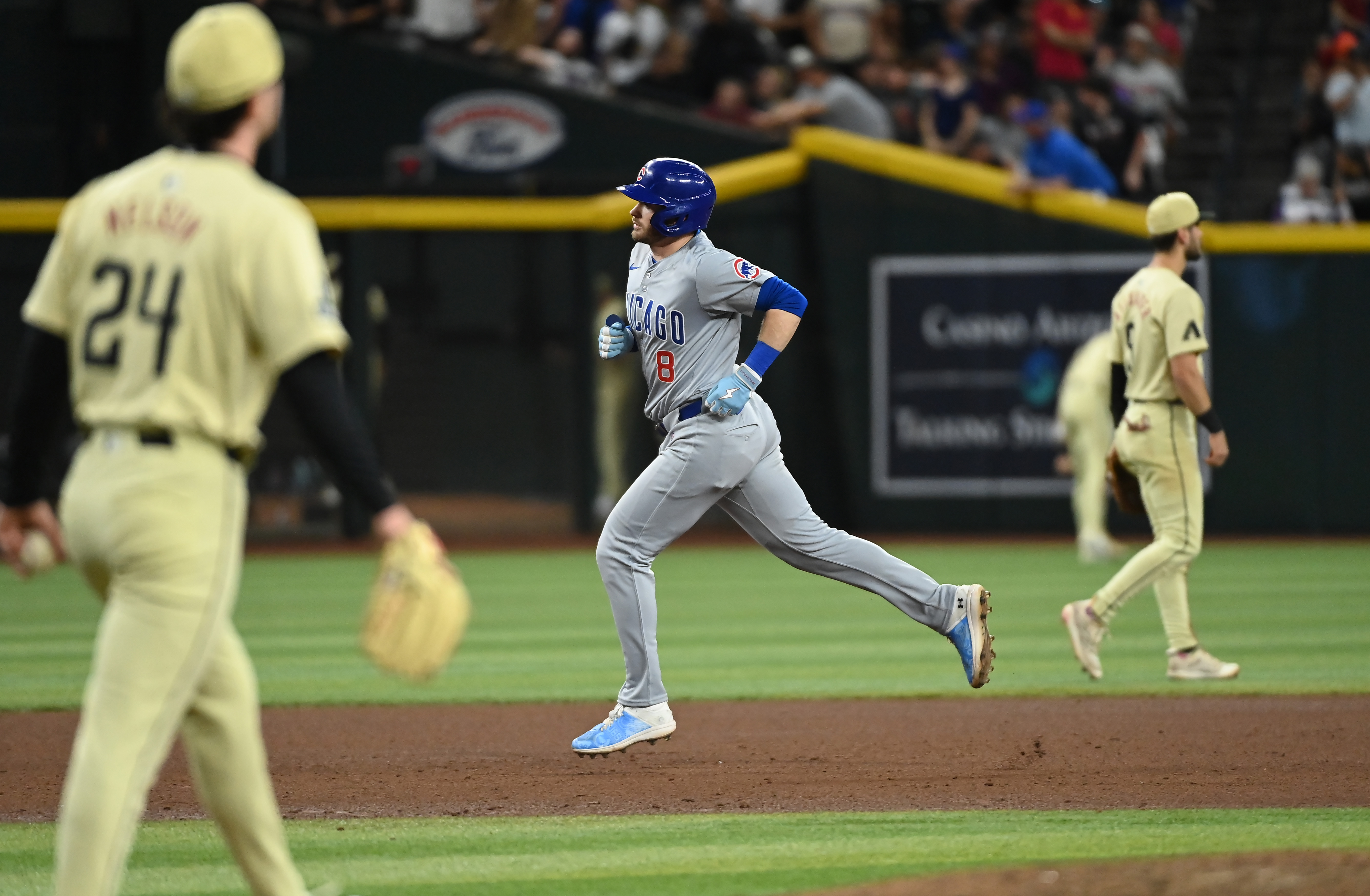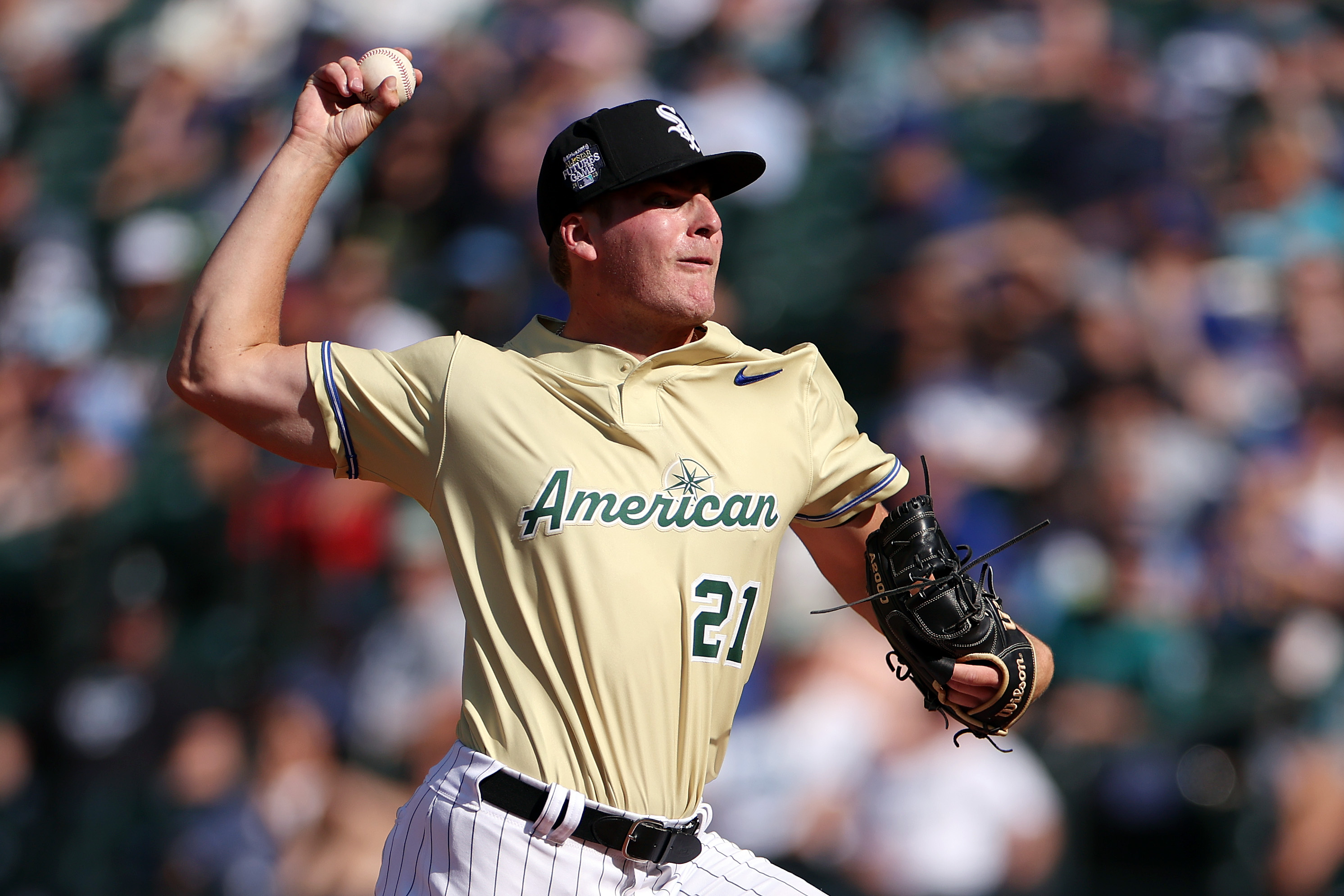The worst part about the Cubs’ quick exit from the playoffs Friday wasn’t the shocking home run by Miami’s Corey Dickerson in Wednesday’s opener or even the Cubs’ absurdly flaccid bats throughout the two-game sweep by the Marlins.
The worst part was that when former Cub Brandon Kintzler threw the final strike of the game past Jason Kipnis Friday, the lights came up in the theater.
And with the end of a baseball rom-com that held our attention for 60 games and a wild 16-team first round of the playoffs, it was back into the harsh light of a cold Chicago day, into a real world that has never been more real.
Stay in the game with the latest updates on your beloved Chicago sports teams! Sign up here for our All Access Daily newsletter.
If the city’s baseball faithful seem a little more frustrated and angry after back-to-back days of first-round playoff elimination of its two baseball teams, maybe it’s because this season meant a little more, was needed a little more this summer for so many people.
And when it ended, after the Cubs picked up their gear, grabbed their masks and hand sanitizer and left the dugout in a near-empty ballpark for the final time this year, Cubs veteran Anthony Rizzo described his own emotions as "just numb."
“It’s just the weirdest thing that I’ve ever experienced maybe in my whole life,” third baseman Kris Bryant said. “Definitely in my baseball career. Maybe my whole life.”
It was easy to forget in the wash of frustration and deafening silence of Cubs hitting Wednesday and Friday that this was a major-league season built in the middle of a COVID-19 minefield during a time of simultaneous social, economic and health crises like no living American has ever seen.
MLB
Even easier at times to forget it was a season that almost wasn’t. A season shortstop Javy Báez called “just so different and so confusing.” A season that didn’t start until late July — and that looked on the brink of falling apart by August after this same Marlins team, and then the Cardinals, had widespread coronavirus outbreaks.
RELATED: Javy Báez wants to remain with Cubs for rest of career
But that’s also what made this the greatest — if also the strangest — season we’ve ever seen, for as long as it lasted.
For the fact that they played it, and finished it at all.
Nobody should be expected to like how it ended. And nobody from the clubhouse made excuses Friday for the lack of hitting or quick bounce from the playoffs.
But the larger context of this season was measured not only by the number of masks, coronavirus tests and players around MLB who opted not to play because of the health-risk within the game’s 2020 framework, but also by the stark realities outside baseball’s bubbles.
Cubs and Marlins players who went to bed before midnight Thursday awoke Friday to news that President Trump and his wife had tested positive for COVID-19. About the time the game ended, Trump was being moved to Walter Reed Hospital for “precautionary” reasons.
“To see the president and the first lady get it, you think that’s just not possible,” left fielder Kyle Schwarber said, “just because it’s the president and first lady, and they’re supposed to be probably the people that are the most safe in the United States. And they get it.
“I think it’s just showing to the world that this is real, and I think that we can look at ourselves in the mirror and be really proud of ourselves, knowing that we took care of each other, we took care of ourselves, we took care of our families, we made sacrifices. …”
The divergent paths the Cubs and Marlins took to meet in the playoffs might as well have been the story of this entire MLB season.
The man who threw Friday’s first pitch, Yu Darvish, was the game’s first player in spring training to talk publicly about his fear and the risks of the virus.
After the three-month shutdown, he chose to play after considering opting out and became the biggest reason the Cubs made the playoffs at all, a certain Cy Young finalist.
Whether influenced by the star pitcher’s perspective, the Cubs devised a protocol system that exceeded MLB’s and the union’s initial safety agreement, and they finished the season as the only team without a player testing positive.
The Marlins lost more players to positive tests during the season — 18 — than anyone else because they “screwed up,” as Kintzler said, the first weekend. They went through 61 different players, including 37 pitchers to keep playing, complete a 60-game schedule and find themselves on the same field with the Cubs in October.
“I can’t speak from experience,” manager David Ross said, “because this is my first one as a manager, but talking to some other managers and GMs this has been one of the most difficult seasons in baseball history. So I’m proud of these guys for that and being responsible and being accountable to one another.”
It didn’t make the sting go away Friday.
The Cubs didn’t hit all season. Maybe over 162 games and without some of the safety protocol restrictions, they would have performed better. But maybe their pitching depth would have been exposed over 162 games.
Maybe they wouldn’t have made the playoffs at all in a normal season. Or maybe they would have had enough time to be in a better place to make it and advance.
But nothing was normal about this season. And it didn’t matter, because they played. And we got to spend our energies and emotions on something besides our own pain and fears for three months.
“Big-picture wise I think we’re all going to look back on this season and realize the sacrifices we all made and how easy it is to say how things should be [from the] outside of this quote-unquote bubble,” Ross said. “It was hard for sure, mentally, physically, emotionally. And there’s still teams going, and that’s not trying to [make] an excuse. This is just facts. 2020 is no joke.”
That’s the worst part about seeing the credits roll on the season as the lights come up on the Cubs.
But no matter how bad the ending was, we got 10 weeks of theater. When we needed it most.


